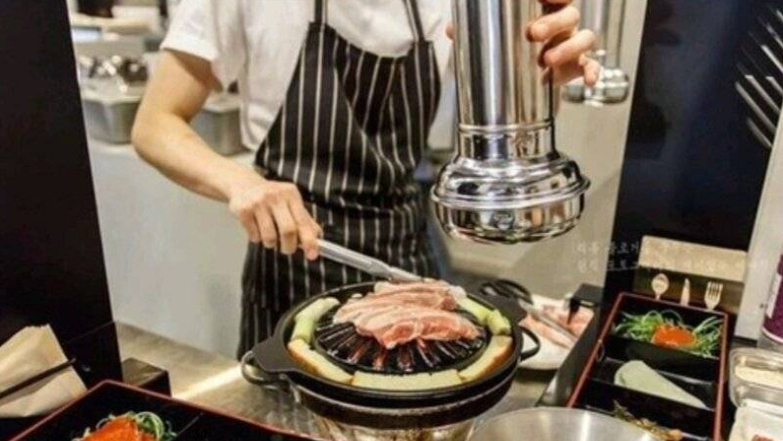In the vibrant world of Korean barbecue, a culinary tradition takes center stage, where guests actively participate in grilling their own meat. While the recent emergence of employee-assisted grilling offers convenience, self-grilling remains a deeply cherished experience for many. It embodies the very essence of Korean barbecue’s cultural significance, where the act of grilling together strengthens bonds, fosters shared experiences, and celebrates the joy of communal dining.
Introduction
Korean barbecue, also known as “gogi-gui,” is a unique dining experience that has captivated both locals and foreign visitors alike. This distinctive culinary tradition involves guests actively participating in the cooking process by grilling their own meat over a table-top grill. This hands-on approach sets Korean barbecue apart from many other cuisines, where the cooking is typically handled by the chef. The DIY aspect of Korean barbecue not only offers practical benefits but also holds deep cultural significance, shaping the overall dining experience.
The Allure of Self-Grilling: A Culinary Symphony of Flavors and Shared Experiences
Korean barbecue’s self-grilling concept offers several advantages that have contributed to its enduring popularity. Firstly, it allows guests to customize their cooking experience, ensuring their meat is cooked to their desired doneness and preferences. This personalized approach empowers diners to savor the flavors they crave, whether it’s the tender succulence of well-done beef or the juicy char of slightly grilled pork.
But beyond the culinary customization, the self-grilling aspect fosters a sense of engagement and camaraderie among diners. The rhythmic sizzle of meat on the grill, the tantalizing aroma wafting through the air, and the shared anticipation of a perfectly grilled morsel create a lively and interactive atmosphere. Conversations flow effortlessly as guests gather around the grill, exchanging stories, jokes, and laughter, forging bonds that extend beyond the meal itself.
A Cultural Phenomenon: Embracing Communal Dining and Shared Experiences
The self-grilling aspect of Korean barbecue is deeply ingrained in Korean culture. It reflects the value of communal dining and shared experiences, where food serves as a catalyst for social interaction and bonding. The act of grilling together brings people closer, creating a convivial atmosphere that nurtures relationships and strengthens community ties.
This emphasis on communal dining is deeply rooted in Korean Confucian values, which emphasize respect, harmony, and shared responsibility. The act of grilling meat together embodies these values, fostering a sense of equality and mutual respect among diners. Guests of all ages and social backgrounds gather around the grill, sharing stories, laughter, and the joy of preparing a meal together.
Economic Factors and Accessibility: A Culinary Innovation Driven by Convenience and Efficiency
The rapid economic growth of South Korea in the 1960s is believed to have contributed to the popularity of self-grilling barbecue restaurants. The fast-paced lifestyle that emerged during this period favored efficient dining practices, and self-grilling allowed for quicker table turnover. This efficiency was particularly appealing to busy urbanites seeking a quick and satisfying meal.
Additionally, the relatively simple cooking process of Korean barbecue made it accessible to a wider range of customers. Unlike more complex culinary traditions, self-grilling requires minimal culinary expertise, allowing guests of all skill levels to participate in the preparation of their meal. This accessibility further fueled the popularity of Korean barbecue, making it a culinary choice that transcended social and economic barriers.
The Rise of Employee-Assisted Grilling: A Balancing Act of Convenience and Tradition
In recent years, a trend towards employee-assisted grilling has emerged in Korean barbecue restaurants. This shift caters to guests who may lack grilling expertise or prefer a more hands-off dining experience. Trained staff take on the grilling task, ensuring that the meat is cooked to perfection and presenting it to guests with finesse.
While employee-assisted grilling offers convenience and expertise, it has sparked mixed reactions among patrons. Some appreciate the hassle-free experience and the assurance of perfectly cooked meat. Others, however, express concerns about the disruption it can cause to social interactions. The presence of employees at the grill can feel intrusive, hindering the flow of conversation and the camaraderie that is central to the Korean barbecue experience.
The Enduring Appeal of Self-Grilling: A Culinary Tradition Rooted in Social Connection and Cultural Identity
Despite the growing popularity of employee-assisted grilling, self-grilling remains a preferred option for many Korean barbecue enthusiasts. The hands-on experience, the sense of control over the cooking process, and the opportunity for unhindered conversation are highly valued aspects of the traditional self-grilling experience.
For many, self-grilling is more than just a way to cook food; it is a cultural ritual that connects them to their heritage and strengthens their sense of identity. The shared experience of grilling meat together embodies the values of communal dining, camaraderie, and shared responsibility that are deeply ingrained in Korean culture.
A Culinary Delight for Foreign Visitors: Embracing the Uniqueness of Korean Barbecue
Korean barbecue has also captivated foreign visitors, offering a unique dining experience that goes beyond simply satisfying hunger. The hands-on grilling, the lively atmosphere, and the opportunity to immerse in Korean culture have made Korean barbecue a popular destination for tourists seeking authentic culinary adventures.
Here’s a link to theqoo.I appreciate you taking the time to read this post. Please share your thoughts in the comments!



I went to Hongdae and cooked my own meat at a restaurant! It was a unique experience.
But I might not be able to do it again next time I’m in Seoul.